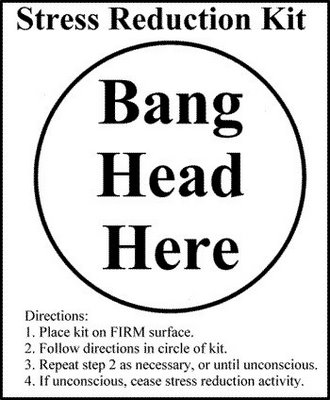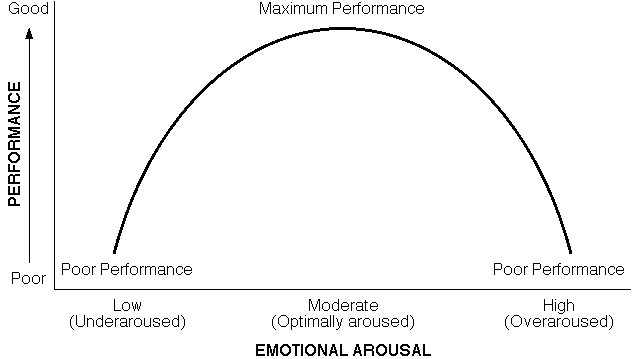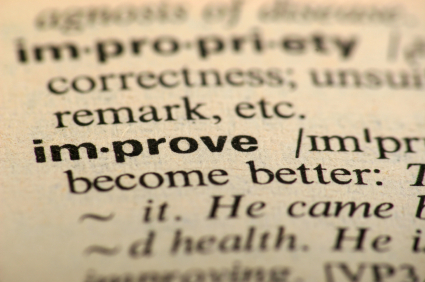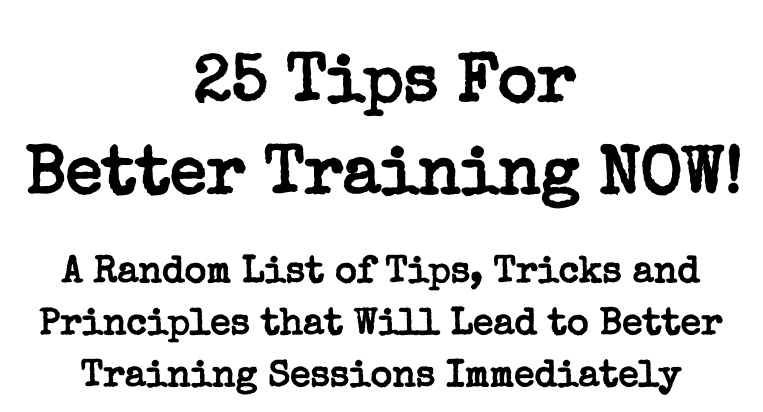Stress…everybody has it.
Doesn’t matter who you are and what you do, you have stress in your life. What is important is to manage stress as best as possible.
The catch 22 is that ALL things are stressful…ie they cause a response through the nervous system. All inputs cause a reaction in the Central Nervous System or CNS.
The nervous system is the main controlling and communicating system of the body. Every thing we do, feel and think consciously or unconsciously is directed by the nervous system. The communication between the nervous system and the body is through electrical and chemical signals that move rapidly and to specific areas allowing for immediate response
The Central Nervous System consists of the brain and spinal column…this is where inputs are taken in and respond to…the ANS (autonomic nervous system) is best thought of as a “go between” the outside world and our CNS.
The ANS or PNS (peripheral nervous system, either term is correct) basically takes in all the sensory input and sends it to the CNS for it to decide what that input is and how to react.
The PNS is further divided into two parts the parasympathetic and sympathetic nervous system. Generally speaking, the sympathetic nervous system is what we learned in school as a “fight or flight” response….the, how to respond to this new stressor system….The parasympathetic nervous system however, is the rest and relaxation response…another comparison from Wikipedia:
the parasympathetic system is responsible for stimulation of “rest-and-digest” activities that occur when the body is at rest, including sexual arousal, salivation, lacrimation (tears), urination, digestion, and defecation. Its action is described as being complementary to that of one of the other main branches of the ANS, the sympathetic nervous system, which is responsible for stimulating activities associated with the fight-or-flight response.
So, with this in mind we have to remember that physical training is a HUGE CNS stressor and needs to be accounted for along with the stress of life in general in any successful training program.
If we accumulate too much stress recovery becomes virtually impossible because the body is never allowed to enter into a period of rest and recovery.
At this point the sympathetic nervous system is working overtime and if it continues long enough we enter into a state of sympathetic dominance. Essentially, we become overtrained.
Our CAR or current adaptive reserve (the ability to recover) has been overcome and overwhelmed by the levels of chronic stress. Our bodies are always searching for “equilibrium” between the sympathetic and parasympathetic systems.
Think of the left side of the graph being the parasympathetic nervous system (rest and digest) and the right side being the sympathetic nervous system (fight or flight).
When shown graphically, it’s easy to see how having just enough arousal (sympathetic tone) would be beneficial to an athlete (or any one) where as too much would cause high anxiety and too little would result in a “depressed” state.
Now you understand why equilibrium between these systems is optimal?
Hint: Equilibrium is that middle part, where the top of the curve says MAXIMUM PERFORMANCE!…yeah, that part…..
So the question becomes how do we obtain this point of maximal arousal and performance especially when we have training, work and life to contend with?
The truth is, YOU CAN’T…..or at least not always or probably often for precisely those reasons.
We have a lot of variables to contend with.
You never know what’s going to happen in life, who’s going to get sick, when your car is going to break down, when your kids are going to bug the hell out of you, when your boss is going to drop a load of work on your desk at 3pm on a Friday etc, etc, etc….
all of these things are stressful on some level and affect your levels of arousal like it or not.
What you can control is sleep, nutrition, recovery and programming.
Getting enough sleep can have a huge impact in stress levels.
During sleep, especially deep, REM sleep, is when the body actually gets a chance to recover and rebuild from the mechanical stress of the previous day….this type of deep sleep is crucial to recovery. and NO, rest is NOT SLEEP….
Nutrition….it’s easy, eat right.
Get enough protein, 1 gram per pound of body weight, eat enough healthy fats (omega 3’s), get a variety of fruits and vegetables and limit carbs. It’s not rocket science…
Recovery work like massage, self massage, meditation, contrast showers and aerobic recovery work (hr 100-130bpm).
In terms of training, constantly “maxing out”, going to failure, never-changing exercises, constantly changing exercises, doing tons of hard conditioning and never planning deload weeks or time off can all lead to the accumulation of too much stress…..the goal of training is to…….
Not just be really tired at the end of the workout or sore the next day. Best summed up with:
Train Optimally, not Maximally
“A body under recovery will always seek homeostasis. So it is always better to undertrain than to overtrain. You will still supercompensate, but not to the degree. Once you overtrain, your body will plummet and fight to retain a balance. Smaller CNS demands over a longer period of time result in more acceptance and greater improvement. While the rush to get more done leads to uncertainty down the road.”-Charlie Francis
With these things in mind it’s generally assumed that as someone trains (and improves their fitness level) they will improve their CAR (current adaptive reserves)……from personal experience we know this is true as we train more we can train longer and harder (to a point) in subsequent sessions and still recover between sessions where as in the past those same training levels would have “crushed” us.
Think about the term “periodization” and what it means;
“programed variation in the training stimuli with the use of planned rest periods to augment recovery and restoration of an athletes potential (1)…..According to Mike Stone, “Periodization can be defined as a logical phasic method of varying training volume, intensity factors, and exercises in order to optimize the training process. the primary goals of periodization are the avoidance of overtraining and performing at peak or optimum levels at the right time“– Jason Shea.
All Periodization means is a program to manage the stress of training and it’s response by the body.
When you think about how many performance coaches talk about the importance of a periodized program it’s obvious this “stress management” thing is important and now it looks like the body as a whole has this ability to develop a resistance any type of stress.. researchers found that those who dealt with moderate lifetime adversity maintained a more stable sense of well-being than those who never faced difficult situations.
Is this the building of CAR regarding other aspects of life? Does training count as adversity? Does exercise build this ability across multiple domains? Does this ability transfer to training and vice versa?
I have no clue (my guess actually is yes), but I don’t know for sure.
What I do know is that stress and managing it is the key component to any training program and possibly life in general.
Great discussion with Buddy Morris, Tom Myslinski, Dave Tate and Jim Wendler about stress and recovery….Definitely NOT SAFE FOR WORK….






[…] The “stressed” stress response, the elevated heart rate, shallow breathing, increased me… […]